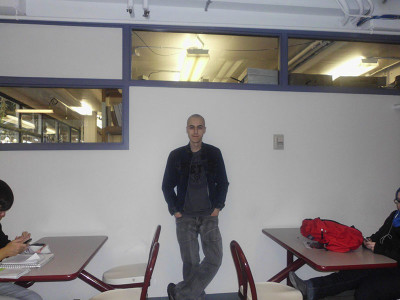Students learn to FACE IT
STORY BY GREG LOWENTHAL
How do you face a challenge? For FACE IT, a group at Sheridan for students with autism, the challenges can seem overwhelming. Friends Accepting Challenges and Endeavouring to Improve Themselves allows them to have a place to come to every Thursday and discuss topics important to them. There are two branches of the group and they meet at the Trafalgar Road and Davis Campuses. FACE IT celebrates the end of each semester with a group outing. Last semester, the group’s outing was lunch at Jack Astor’s in Mississauga followed by the movie The Hobbit 2: The Desolation of Smaug.
The group also welcomes those with Asperger’s Syndrome.
Media Arts student Owen Baxter-Derro enjoys being part of FACE IT and is aiming to get into the Bachelor of Film and Television program. “I felt like I was alone. FACE IT gives me a family away from my family,” He added that being in the group is like “wearing a comfortable jacket. It takes some time to getting used to but eventually it fits.”
Jordan Williams, a Creative Writing student who joined in September said he joined the group because the people there are new and open-minded.
Sydney Herman-Woods, in the General Arts and Sciences (GAS) Program joined the group in October and said she really likes not being judged on what she says in the group.
Janice Galloway, Accessible Learning Strategist, a volunteer, has been with the group since September. She says she learns something new each week.
“The students teach me a lot about life, being a student in post secondary, the challenges they face and how I can help them.”Galloway said. “The most rewarding part is seeing the students coming back.”
Tae Hwang, counsellor with Student Services and founder of the group, said the group began five years ago. He says of one of the most difficult parts is scheduling everyone around the group’s meeting time, which is Thursdays from 11 a.m. to 1 p.m.
“Seeing members leave after they graduate is the most difficult part of running the group,” Hwang said. “We lose members but we also gain members.”





